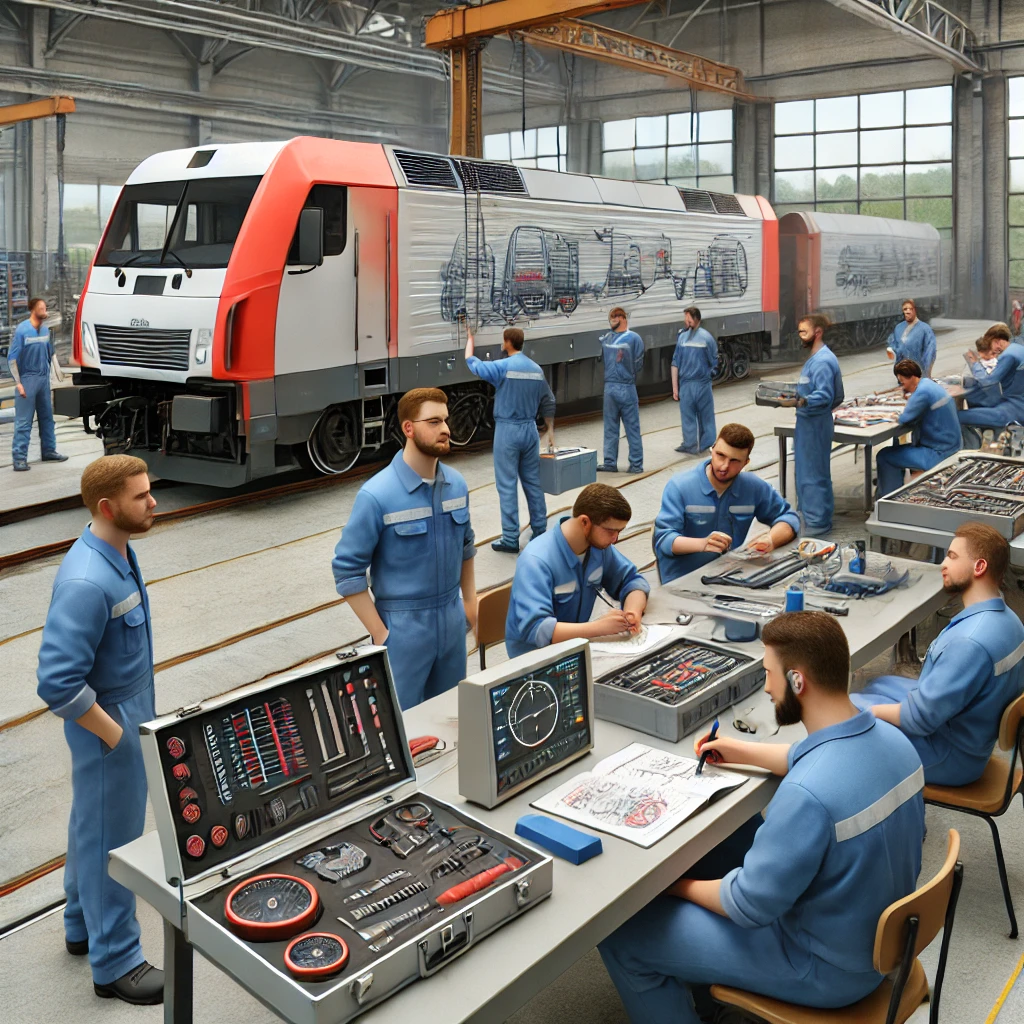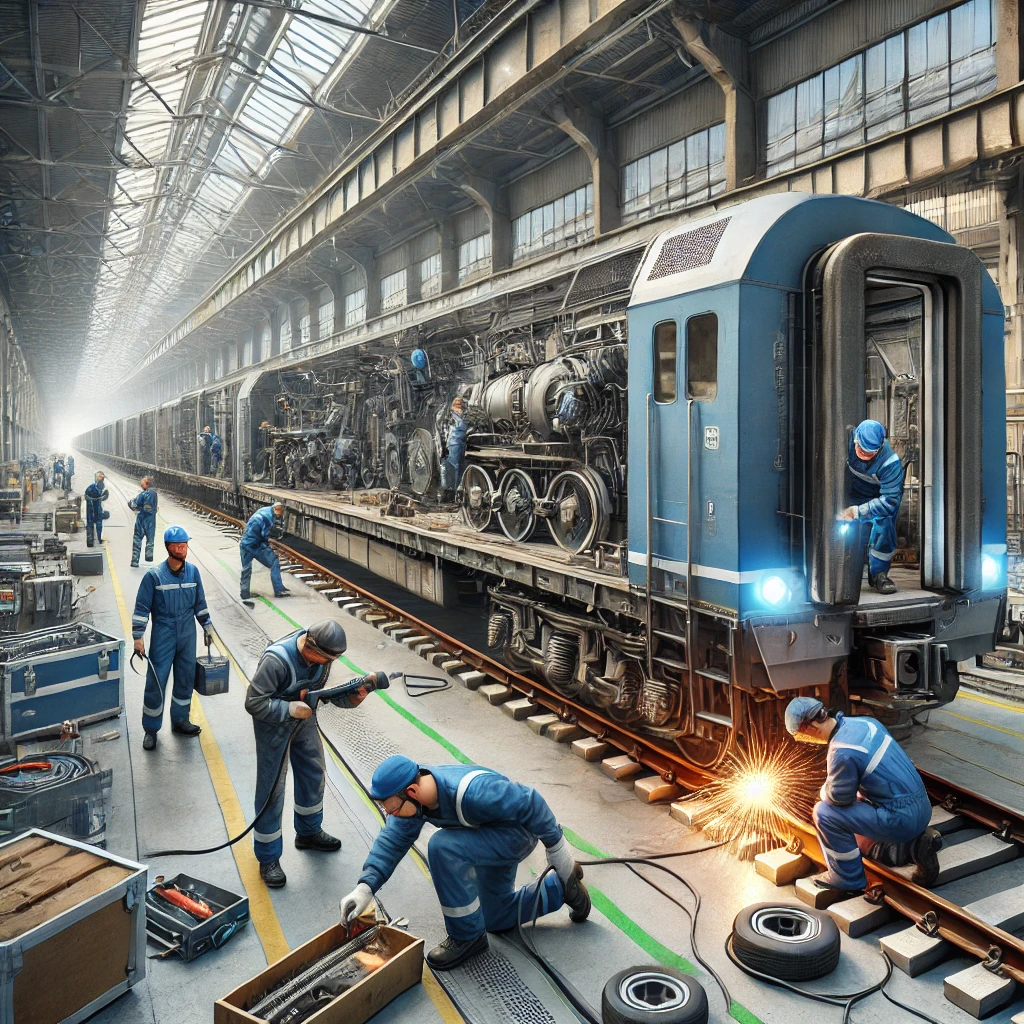Everything You Need to Know About Potential Career Paths for Freight Car Mechanics

What is a Freight Car Mechanic?
A freight car mechanic is responsible for inspecting, maintaining, and repairing rail freight cars used in transporting goods. These professionals ensure that railcars are in optimal condition to prevent accidents, delays, and mechanical failures. Their job includes tasks such as:
- Performing safety inspections on railcars.
- Repairing brakes, wheels, and suspension systems.
- Conducting welding and fabrication work.
- Replacing damaged or worn-out parts.
- Adhering to railroad industry regulations and safety standards.
Key Skills Required for Freight Car Mechanics
To excel in this profession, freight car mechanics need:
- Mechanical expertise – Understanding railcar components and repair techniques.
- Problem-solving skills – Diagnosing and fixing mechanical issues efficiently.
- Attention to detail – Ensuring compliance with safety regulations.
- Physical stamina – Working in demanding environments, including rail yards and repair facilities.
- Welding and metalworking skills – Repairing and fabricating metal components.
- Knowledge of railway regulations – Following Federal Railroad Administration (FRA) and other industry standards.

Potential Career Paths for Freight Car Mechanics
Freight car mechanics have multiple career advancement opportunities within the rail industry and beyond. Some of the most common career paths include:
1. Senior Freight Car Mechanic
- Role: Mechanics with several years of experience can move into senior positions where they handle complex repairs, oversee maintenance teams, and ensure compliance with industry standards.
- Salary Expectation: $50,000 – $70,000 per year.
- Growth Opportunity: Experience in senior roles can lead to supervisory positions or specialized certifications.
2. Freight Car Inspector
- Role: Focuses on conducting detailed inspections to certify the safety and functionality of freight railcars.
- Responsibilities:
- Ensuring compliance with federal and company safety regulations.
- Identifying and documenting mechanical issues before they lead to failures.
- Salary Expectation: $55,000 – $75,000 per year.
- Growth Opportunity: May advance to lead inspector or safety compliance officer roles.
3. Rail Yard Supervisor
- Role: Manages teams of mechanics and inspectors in rail yards, overseeing repairs, scheduling maintenance, and ensuring efficient operations.
- Responsibilities:
- Assigning repair tasks and ensuring timely maintenance.
- Coordinating with railway operators to optimize train schedules.
- Salary Expectation: $65,000 – $85,000 per year.
- Growth Opportunity: Potential to move into managerial positions within rail companies.
4. Rolling Stock Technician (Locomotive Mechanic)
- Role: Expands expertise beyond freight cars to include locomotives and train engines.
- Responsibilities:
- Diagnosing and repairing locomotive mechanical and electrical issues.
- Performing scheduled and emergency maintenance on train engines.
- Salary Expectation: $70,000 – $90,000 per year.
- Growth Opportunity: Can lead to leadership roles in locomotive maintenance.
5. Railroad Safety Compliance Officer
- Role: Ensures that railway companies and mechanics adhere to FRA and Occupational Safety and Health Administration (OSHA) regulations.
- Responsibilities:
- Conducting audits and safety inspections.
- Training rail staff on compliance and safety protocols.
- Salary Expectation: $75,000 – $95,000 per year.
- Growth Opportunity: Potential to work with federal agencies or large railway corporations.
6. Industrial Machinery Technician (Transferable Skills Pathway)
- Role: Applies mechanical skills to other industries, such as manufacturing, aerospace, or heavy equipment maintenance.
- Responsibilities:
- Maintaining and repairing industrial machinery.
- Diagnosing mechanical failures and implementing solutions.
- Salary Expectation: $60,000 – $85,000 per year.
- Growth Opportunity: Opens doors to work in diverse industries beyond rail transportation.

Education and Certification Requirements
- High School Diploma or GED – Required for entry-level positions.
- Trade School or Vocational Training – Mechanical or railroad technology programs can be beneficial.
- Railroad Certification Programs – Offered by industry groups and companies for specialized skills.
- Welding Certification – Helps with metal fabrication work required in railcar maintenance.
- OSHA Safety Training – Ensures compliance with workplace safety standards.
Job Outlook for Freight Car Mechanics
- The U.S. Bureau of Labor Statistics projects steady demand for rail maintenance jobs due to the need for safe and efficient freight transport.
- Growth in intermodal freight and railway infrastructure projects creates new employment opportunities.
- Experienced mechanics with additional certifications have higher earning potential and career stability.

Conclusion
Freight car mechanics play a vital role in keeping the transportation industry running efficiently. With opportunities for career advancement in inspection, supervision, safety compliance, and locomotive maintenance, professionals in this field can enjoy stable and rewarding careers. By developing specialized skills and obtaining industry certifications, freight car mechanics can enhance their expertise and move into high-paying, senior-level positions in the railroad and mechanical industries.
